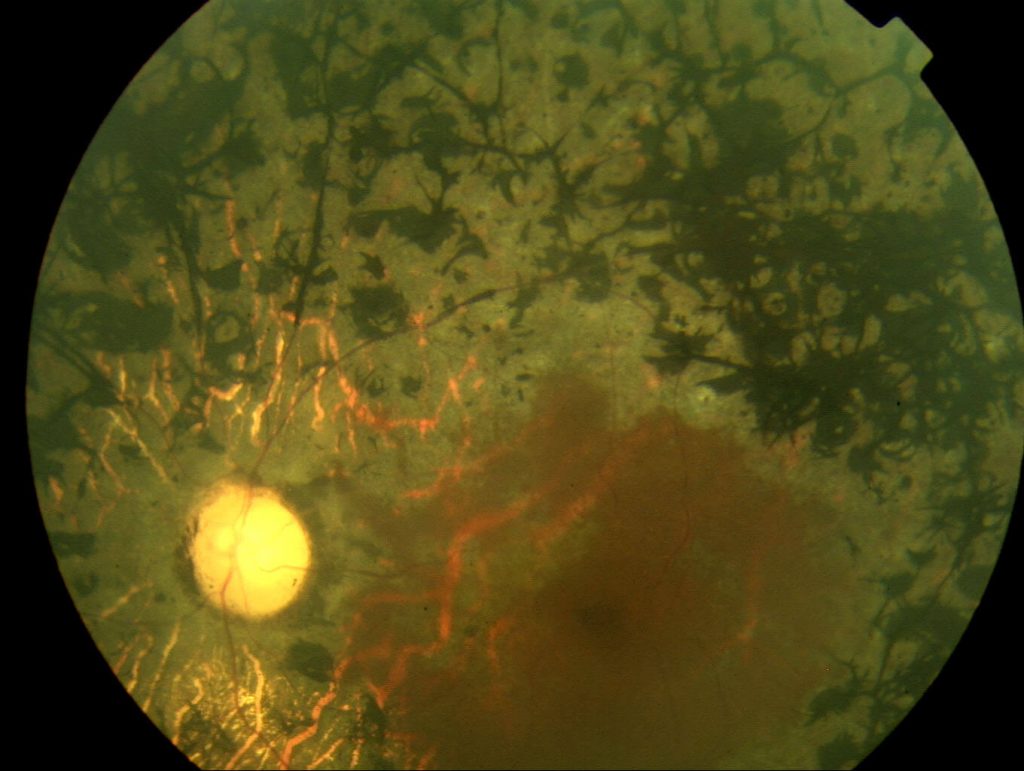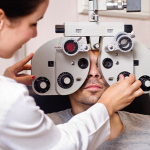Dr. Zuhal Butuner Explains Retinitis Pigmentosa (RP)
Retinitis pigmentosa (RP) is a group of rare eye diseases that affect the retina (the light-sensitive layer of tissue in the back of the eye). Dr. Zuhal Butuner says this genetic disease causes cells in the retina to break down slowly over time, resulting in a gradual loss of vision. Symptoms typically begin in childhood and progress, causing significant visual impairment. While RP has no cure, options are available to help individuals with RP make the most of their remaining vision. Vision aids and rehabilitation programs can be incredibly helpful for individuals living with RP, allowing them to navigate daily life more independently and easily.

RP is caused by mutations in certain genes that control retinal cells. The disorder can be inherited in various ways, including an autosomal dominant, autosomal recessive, or x-linked pattern, which may differ depending on the specific gene mutations involved. Dr. Zuhal Butuner suggests that people with RP consult their doctors or genetic specialists to learn more about certain medications, infections, or eye injury.
What are the symptoms of RP?
The most common early symptom experienced is loss of night vision, which typically presents itself during childhood. Children with RP may experience difficulties moving around in the dark or seeing things in dim lighting. RP slowly erodes your peripheral vision, leaving you with a narrow field of vision over time. RP patients may experience what’s commonly referred to as “tunnel vision,” which affects their side vision. Ultimately their central vision may also become affected. Some individuals experience a gradual decline in vision, while others may lose their sight more quickly. Unfortunately, regardless of the pace of the condition, most people with RP will eventually experience total vision loss. As the disease progresses, individuals may also experience difficulty with color perception and a heightened sensitivity to bright light. Dr. Zuhal Butuner recommends those with RP receive proper support to manage these symptoms and maintain their quality of life.
What treatment options are available for RP?
Unfortunately, there is currently no cure for RP. However, individuals with RP can utilize low vision aids and rehabilitation programs to maximize their remaining vision. Additionally, speaking with an eye doctor about vitamins and supplements, such as vitamin A, fish oil, and lutein, can slow down vision loss. According to Dr. Zuhal Butuner, people with RP should receive regular eye exams, as they are more likely to have other eye problems, including refractive errors, cataracts, and cystoid macular edema. Early detection and treatment of these issues can significantly improve individuals’ visual function.
The National Eye Institute (NEI) is at the forefront of research related to retinitis pigmentosa (RP) and other genetic eye diseases. With a focus on developing treatments that aim to restore vision and prevent vision loss, the NEI funds groundbreaking research in various fields. The current practical applications under investigation include gene therapies, cell therapies, and new medications, intending to provide new treatments that may become standard.
To read about Dr. Zuhal Butuner’s invaluable insights on eye health and wellness, please visit this webpage.






